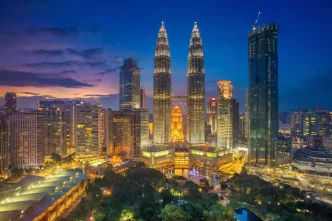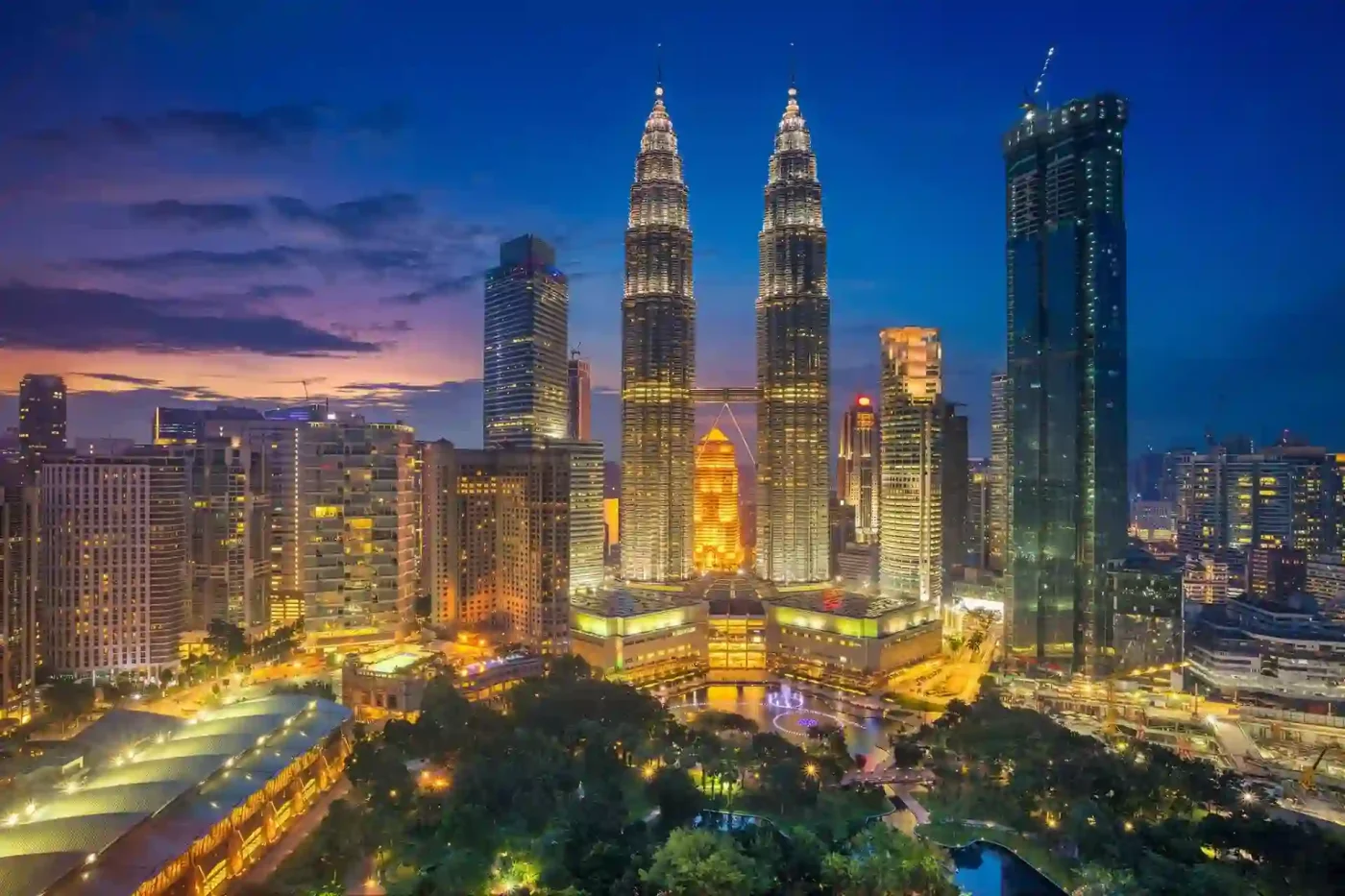Malaysia is setting the stage for a pivotal regional gathering as it prepares to host the 46th ASEAN Summit from May 26-27, 2025, in Kuala Lumpur. With the theme of “Inclusion and Sustainability,” the event underscores the country’s commitment to fostering a united and prosperous Southeast Asian bloc amid a complex global landscape. As the host and current ASEAN Chair, Malaysia is pulling out all stops to ensure the summit’s success, with Foreign Minister Datuk Seri Mohamad Hasan expressing confidence in the nation’s security preparedness and organizational capabilities.
Security at the Forefront
At the closing ceremony of the ASEAN – Malaysia 2025 Security Rehearsal Exercise on May 7, Foreign Minister Mohamad Hasan emphasized the importance of meticulous planning to uphold Malaysia’s reputation as a capable host. “Security matters should not be taken lightly given the complicated global landscape” he said, highlighting the need for vigilance in an era marked by geopolitical tensions and regional challenges. His remarks reflect a broader concern among ASEAN member states about ensuring stability during high-profile gatherings, especially as the bloc navigates issues like the South China Sea disputes and economic recovery post-pandemic.
The Kuala Lumpur Convention Centre, the designated venue for the summit, will be under tight security, with national agencies coordinating efforts to safeguard delegates and maintain order. The Foreign Minister expressed satisfaction with the level of preparation, a sentiment that signals Malaysia’s determination to project strength and reliability on the international stage. This focus on security is not merely logistical but also symbolic, as Malaysia seeks to reinforce trust among ASEAN partners during its fifth tenure as chair, having previously held the role in 1977, 1997, and 2015.
Inclusion and Sustainability as Guiding Principles
Malaysia assumed the ASEAN Chairmanship from Laos on January 1, 2025, with a clear vision encapsulated in its chosen theme. “Inclusion and Sustainability” reflects an ambition to address both social equity and environmental challenges within the region. This dual focus comes at a critical juncture for ASEAN, as member states grapple with disparities in economic development and the urgent need to combat climate change. Malaysia, as a middle-income nation with a diverse population, is positioning itself as a bridge-builder, advocating for policies that prioritize marginalized communities while pushing for green initiatives.
The theme also aligns with broader global agendas, such as the United Nations’ Sustainable Development Goals (SDGs). Analysts suggest that Malaysia may use the summit to propose regional frameworks for sustainable urban development and inclusive economic growth, areas where the country has made strides domestically. For instance, Kuala Lumpur’s investments in public transportation and renewable energy could serve as a model for neighboring nations. However, questions remain about how concrete commitments will emerge from the summit, particularly given ASEAN’s consensus-driven decision-making process, which often slows down bold reforms.
Logistical Arrangements and Public Impact
To minimize disruptions during the summit, the Malaysian government has implemented measures to manage traffic and ensure public safety. Schools near the Kuala Lumpur Convention Centre will transition to home-based teaching and learning, as announced by Communications Minister Datuk Fahmi Fadzil. The Ministry of Education is identifying institutions along key routes to facilitate this shift, ensuring that students’ education continues uninterrupted despite the temporary closures.
Additionally, the government is encouraging private sector employers in the vicinity of the summit venue to allow staff to work from home. Fahmi, who also serves as the spokesperson for the MADANI Government, noted that the Public Service Department has issued guidance permitting civil servants affected by potential traffic congestion to apply for remote work arrangements. These steps aim to reduce logistical strain on the city, which is expected to see heightened security and restricted access in central areas during the event.
While these measures are practical, they also highlight the broader impact of hosting an event of this magnitude on local communities. Residents of Kuala Lumpur may face temporary inconveniences, but the government is framing the summit as a point of national pride, an opportunity to showcase Malaysia’s hospitality and organizational prowess. Public sentiment, as gauged from social media platforms like X, appears mixed, with some expressing frustration over disruptions while others celebrate the international spotlight on their city.
Regional and Global Context
The 46th ASEAN Summit arrives at a time of heightened regional and global uncertainty. The South China Sea remains a flashpoint, with overlapping territorial claims involving several ASEAN members and China. Malaysia, while not as vocally assertive as some of its neighbors, has a vested interest in maintaining stability in these waters, which are crucial for trade and energy resources. The summit could provide a platform for dialogue on de-escalation, though analysts caution that any breakthroughs are unlikely without broader geopolitical shifts.
Economically, ASEAN is striving to solidify its position as a collective powerhouse. The bloc’s combined GDP exceeds $3 trillion, making it a significant player in global markets. Yet, challenges such as inflation, supply chain disruptions, and the lingering effects of the COVID-19 pandemic persist. Malaysia, under its chairmanship, may push for enhanced intra-ASEAN trade agreements and digital economy initiatives, leveraging its own advancements in technology and e-commerce. The summit’s outcomes in this regard could set the tone for the region’s economic trajectory in the coming years.
Moreover, the theme of sustainability ties into pressing environmental concerns. Southeast Asia is one of the world’s most vulnerable regions to climate change, with rising sea levels, deforestation, and extreme weather events threatening livelihoods. Malaysia’s leadership could steer discussions toward regional cooperation on carbon reduction and renewable energy, though the diverse economic priorities of member states—ranging from oil-dependent economies to agrarian societies—may complicate consensus.
Malaysia’s Historical Role in ASEAN
This year marks Malaysia’s fifth time chairing ASEAN, a testament to its enduring commitment to regional integration. Each of its previous tenures has coincided with significant milestones for the bloc. In 1997, for instance, Malaysia hosted the summit during the Asian Financial Crisis, playing a key role in advocating for economic resilience. In 2015, under then-Prime Minister Najib Razak, the country oversaw the formal establishment of the ASEAN Economic Community, a landmark step toward a single market and production base.
Reflecting on this history, Malaysia appears poised to draw on past experiences to address contemporary challenges. Its diplomatic approach, often characterized by pragmatism and moderation, could serve as a stabilizing force during the 2025 summit. However, the country must also navigate domestic political dynamics, as the MADANI Government seeks to balance national interests with regional obligations. Public expectations for tangible benefits from hosting the summit—such as economic boosts or infrastructure improvements—will add pressure on leaders to deliver.
Looking Ahead
As the 46th ASEAN Summit approaches, Malaysia stands at a crossroads of opportunity and responsibility. The event is more than a diplomatic formality; it is a chance to shape the future of Southeast Asia amid turbulent times. Will the focus on inclusion and sustainability translate into actionable policies, or will it remain an aspirational slogan? How will Malaysia balance its national priorities with the diverse needs of ASEAN’s ten member states?
For now, the government’s emphasis on security and logistical readiness sends a clear message: Malaysia is prepared to lead. As delegates from across the region converge on Kuala Lumpur, the eyes of Southeast Asia—and the world—will be on this vibrant capital, watching to see if the summit can deliver on its promise of a more inclusive and sustainable future.
















